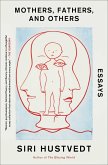In "Out of Mulberry Street: Stories of Tenement Life in New York City," Jacob A. Riis combines vivid storytelling with poignant social commentary, illuminating the harsh realities faced by impoverished immigrants in late 19th-century New York. Riis employs a journalistic style, blending his firsthand experiences with empathetic portraits of tenement dwellers, creating a compelling narrative that serves both as a historical document and a call to action. His detailed observations reveal the struggle, resilience, and humanity of those living in overcrowded, unsanitary conditions, while also addressing broader themes of social reform and urban poverty within the Progressive Era context. Jacob A. Riis, a Danish immigrant himself, became an influential social reformer and photographer after arriving in America in 1870. His early experiences with poverty and homelessness informed his commitment to exposing the plight of the city's marginalized communities. Riis'Äôs work as a police reporter for the New York Evening Sun honed his ability to capture the gritty reality of tenement life, while his encounters with influential figures helped advocate for significant reforms in housing and labor. "Out of Mulberry Street" is an essential read for anyone interested in American history and social justice. Riis'Äôs narrative not only paints an evocative picture of a bygone era but also underscores the ongoing struggles of the underprivileged in urban settings. Readers will find both inspiration and reflection as they traverse the streets of impoverished New York through Riis's passionate prose.
Dieser Download kann aus rechtlichen Gründen nur mit Rechnungsadresse in A, B, BG, CY, CZ, D, DK, EW, E, FIN, F, GR, H, IRL, I, LT, L, LR, M, NL, PL, P, R, S, SLO, SK ausgeliefert werden.









